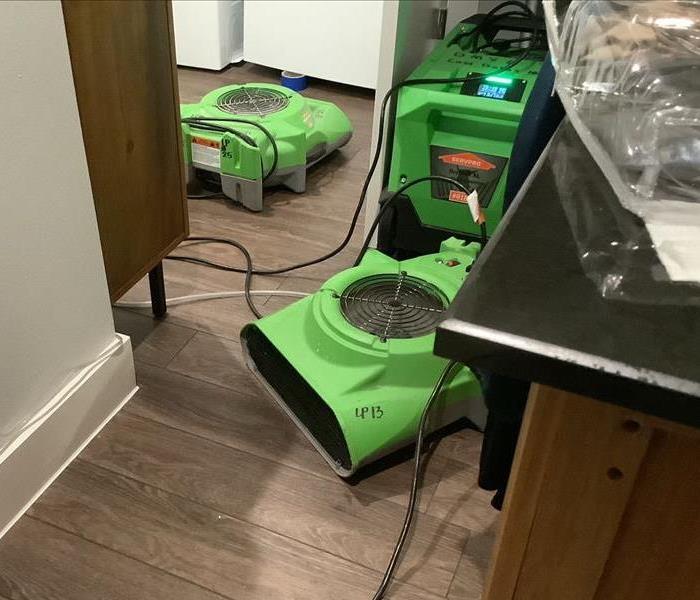Preventing Pipe Bursts
12/27/2023 (Permalink)
Picture this: it's a chilly winter morning, and you're enjoying a cup of coffee when suddenly, you hear a loud pop followed by the ominous sound of rushing water. Your heart sinks as you discover a burst pipe, causing a mess and potentially damaging your home. Pipe bursts can be a homeowner's nightmare, but with proactive measures, you can significantly reduce the risk of such disasters. In this blog, we'll explore practical tips and strategies to prevent pipe bursts and safeguard your home.
- Insulate Your Pipes:
One of the leading causes of pipe bursts is freezing temperatures. When water inside pipes freezes, it expands, exerting pressure on the pipe walls. This pressure can lead to cracks and eventual bursts. To prevent this, insulate your pipes, especially those exposed to colder areas such as basements, attics, or crawl spaces. Pipe insulation sleeves or heat tape can be effective in maintaining a stable temperature.
- Maintain Adequate Heating:
Ensuring proper heating throughout your home is crucial in preventing pipes from freezing. Keep your thermostat set to a consistent temperature, especially during winter nights when temperatures tend to drop significantly. If you're away from home, consider leaving the heating on at a lower but consistent temperature to prevent pipes from reaching freezing temperatures.
- Seal Leaks Promptly:
Even small leaks can lead to big problems over time. Regularly inspect your plumbing for any signs of leaks and address them promptly. A dripping faucet may seem insignificant, but the continuous flow of water can contribute to pipe corrosion and weaken the structure, making it more susceptible to bursts.
- Disconnect and Drain Outdoor Hoses:
Before winter sets in, disconnect and drain water from outdoor hoses. Leaving water in the hoses can lead to freezing, causing backpressure that may affect connected indoor pipes. Store hoses in a sheltered area to prevent exposure to harsh weather conditions.
- Install a Water Softener:
Hard water, characterized by a high mineral content, can accelerate pipe corrosion and reduce their lifespan. Consider installing a water softener to minimize mineral deposits in your plumbing system. This not only extends the life of your pipes but also enhances overall water quality.
- Regularly Flush Your Water Heater:
Sediment buildup in your water heater can compromise its efficiency and contribute to pipe corrosion. Follow the manufacturer's guidelines to flush your water heater regularly, removing sediment and preventing potential damage to both the heater and connected pipes.
- Be Mindful of Water Pressure:
Excessively high water pressure can stress your plumbing system, increasing the risk of pipe bursts. Install a pressure regulator to maintain a safe and consistent water pressure level throughout your home. Regularly monitor your water pressure and address any irregularities promptly.






 24/7 Emergency Service
24/7 Emergency Service
